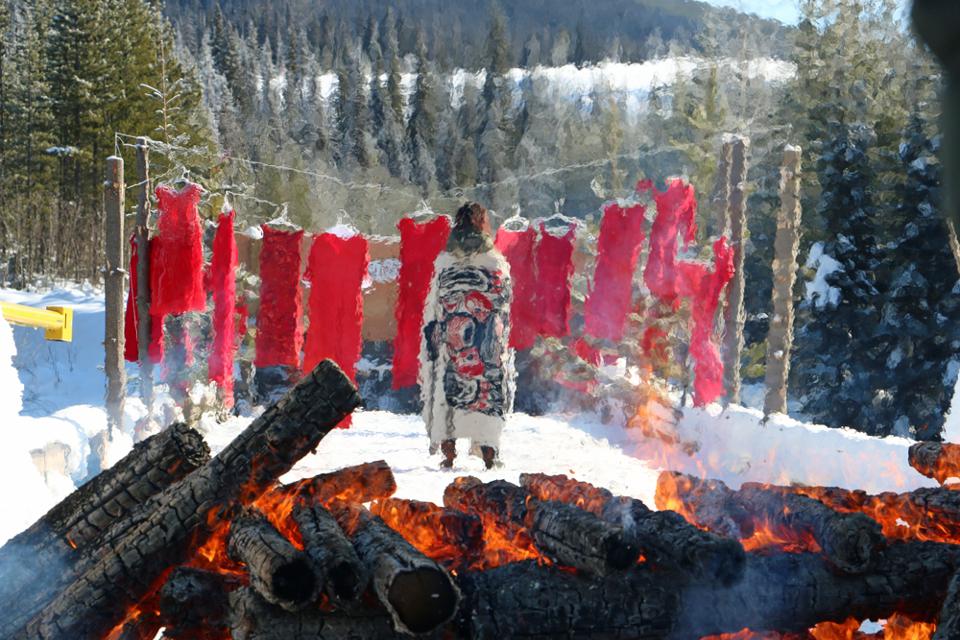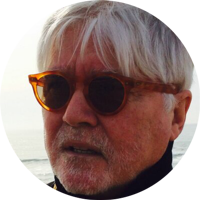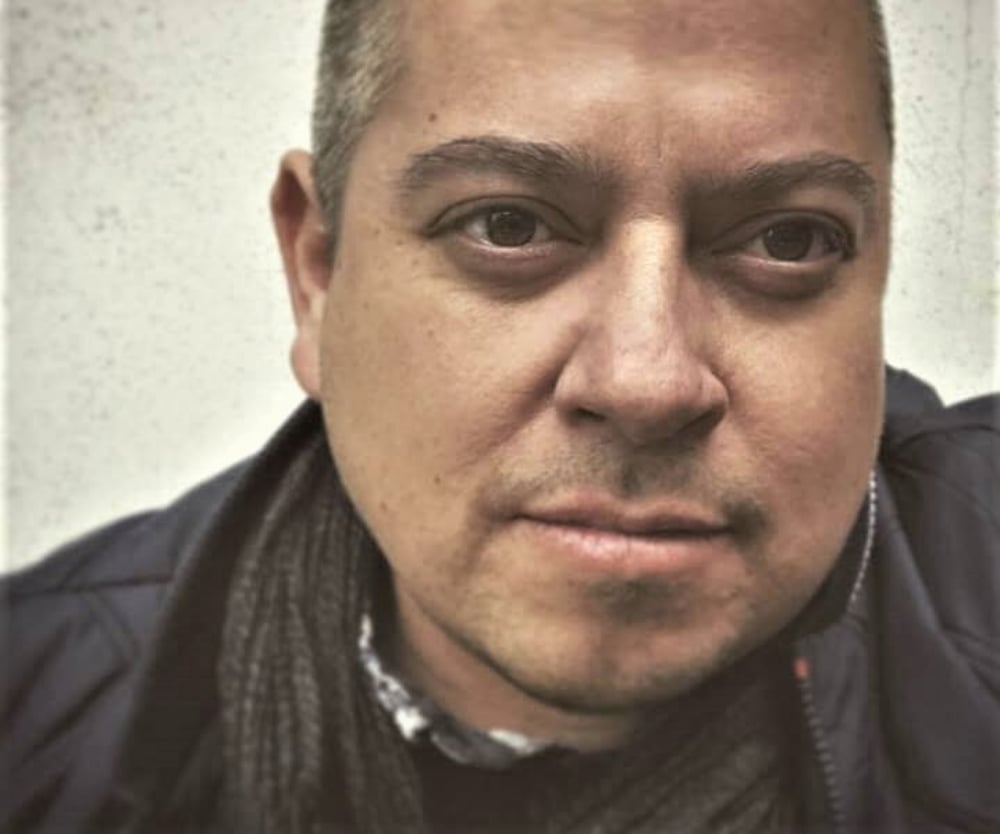Here we go again.
In the latest collision between First Nations rights and government/industry agendas, both politicians and the mainstream media are creating contempt for the Indigenous community.
Wittingly or unwittingly, they have managed to turn the resistance of Wet’suwet’en hereditary chiefs and their supporters against an unwanted pipeline through their territory into a cautionary tale about imperiling the economy.
The result?
The old stereotypes are in the air again, as they were in the Idle No More protests in Ottawa during Stephen Harper’s government. First Nations as malcontents, who always have their hand out and are never satisfied with what they get. Those biases threaten to obscure the heart of the matter yet again.
The heart of the matter is this. Having had their lands confiscated by colonial powers, there has been a systematic attack on Indigenous people in Canada for 150 years. It has aimed at erasing the social, cultural and political entities that make up Indigenous nationhood.
That attack has left them on the short end of every category that confers quality of life in this country: the worst educational outcomes; the worst employment prospects; the worst incomes; the worst water supply; and the worst health outcomes. Only in the rates of incarceration and youth suicide does the Indigenous community lead the nation.
The inquiry into Missing and Murdered Aboriginal Women and Girls concluded that the historical facts, including the horrors of the residential school system, amounted to genocide.
If Canadians are ever going to come to grips with the plight and the psyche of Indigenous Peoples, rather than obsessing about their own comforts, a moment of national honesty is needed. The Rest of Canada (ROC) has to educate itself about the reality of what it means to be Indigenous in this country, and the sooner the better.
A good place to start would be the thinking and the work of Robert Jago.
‘They’re talking about us as if we’re foreigners’
Jago self-effacingly told Maclean’s magazine, “I’m some nobody, basically.” After his stories forced several Conservative party candidates to withdraw from the 2015 election, the magazine disagreed. It concluded that he was Canada’s most dangerous blogger.
Neither description has it right. Jago, who lives in Outremont, Quebec and runs an education firm, and who is a member of the Kwantlen First Nation and the Nooksack tribe in coastal British Columbia, is living proof that imagination and initiative can still make people see old things in new ways.
Jago did just that in fall 2018. During a trip to Italy, the writer, whose work has appeared in the Guardian newspaper, The Tyee, Canadaland and Walrus magazine among others, found himself in Genoa, the birthplace of Christopher Columbus. He asked himself this question:
“What would Christopher Columbus do when confronted with another person’s home that was full of people that he just discovered?”
And so he spoofed the legendary explorer. Jago claimed Columbus’s hometown on behalf of the Indigenous Peoples of the Americas. He even planted a plaque. What better way to show the preposterous exceptionalism of colonialism?
In an extensive interview with The Tyee, Jago was blunt on his take about the current crisis over the Coastal GasLink, starting with government reaction to protesters.
“One thing that strikes me, they’re talking about us as if we’re foreigners. You always think you’re a citizen, even though they send the army against you every now and then. But when you hear them talking about your people this time, they come off sounding like imperial bureaucrats from the 1800s talking about the Hottentots.”
‘I don’t trust Trudeau’
As for Prime Minister Justin Trudeau, who recently declared that the rail blockades must come down and that the Coastal GasLink project will go forward, Jago has little time:
“I don’t trust Trudeau. How can I not see him as the rich plutocrat, rich aristocrat, after mocking those kids from Grassy Narrows who came into his fundraiser? The feeling you get from seeing that video is this is obviously who he is.
“We really disappeared from his talk, from what he said in the last platform. He sees us a wedge issue he can use to win over voters from a certain demographic. Now they’ve moved onto the environment. Trudeau moved on so easily; I think it shows we were never really his most important file, and that he never intended to deal with us nation-to-nation.”
This is not a partisan aversion on Jago’s part. He gives low grades to a string of Canadian prime ministers, effectively voting some of them off Turtle Island.
Pierre Trudeau: “I see him as hostile to us the way he would be hostile to bed bugs. He put Native nationalism in the same box as Quebec nationalism, except less legitimate. He put us in the same box as the FLQ.”
Brian Mulroney: “I think of Oka. A warship in the St. Lawrence to scare people. And the army. But there was some progress on things like the Aboriginal Fishing Strategy. I have mixed impressions of Mulroney.”
Jean Chrétien: “Absolute, utter villain, an end-to-end villain. He was author of the 1969 White Paper that was a roadmap to cultural genocide. He, not any bottle of booze or drug, is the most toxic substance in this country for native people. He hurt a lot of us.”
Paul Martin: “Mixed feelings. He put the cap on our funding.” (Martin’s 1995 budget capped annual increases for First Nations services at two per cent regardless of inflation.) “But he also did Kelowna (a 2005 accord resulting consultations involving the federal government, provincial and territorial governments, and five national Aboriginal organizations). “I know that he knew what he did was wrong with the cap. And he tried to fix it with a big Band-Aid. Nobody needed a windfall. What we needed was predictable, stable funding, cash flow, to plan our lives.”
Stephen Harper: “Very weak. He had an economist’s mindset. Lots of little packages of opt-outs. He did not like us at all. Didn’t see us as Canadians. Micro-tax credits, none targeted at us. Which is weird, because reserves are so conservative.”
‘The coverage is alarmist, magnifying problems’
Jago thinks it would be a mistake to escalate the crisis by taking direct action against protesters and their barricades, as has already happened in Quebec and Ontario. He said that any intervention by CSIS, which he called “the security arm” of the RCMP, “would only make things worse.”
As for media coverage, Jago says it follows a familiar pattern. In the zeal to portray how the protests are hurting the economy (a legitimate, but by far the easiest part of the story to cover), there has been disproportionately less coverage of why the Wet’suwet’en Nation is opposing Coastal GasLink — and what their constitutional and legal rights are in this matter.
In both Delgamuukw versus British Columbia, and Tsilhqot’in Nation versus British Columbia, the Supreme Court of Canada affirmed Aboriginal title to traditional lands, though the court mentioned many grounds for incursions on that right, including economic development.
Under Article 8 of the United Nations Declaration on the Rights of Indigenous Peoples (UNDRIP), the Wet’suwet’en right not to be subjected to the destruction of their culture is clearly spelled out. Who could argue that Wet’suwet’en lands and waters would not be negatively impacted by this pipeline?

Jago believes the media’s concentration on the economic impact of the blockades on the ROC has distorted the situation.
“I think the coverage is alarmist, magnifying problems without talking to protesters. The thing that stands out is that everybody is talking about hereditary chiefs, but we don’t know what is going on in Wet’suwet’en. I have not seen a single interview on the street there. We have better coverage of Moscow or the Moon than Wet’suwet’en.”
Jago personally conducted a poll of every First Nation in Canada. Although the response rate was low, he found that 55 per cent of respondents said that no journalist had visited their community in five years.
Another 30 per cent related that a reporter had never contacted them. In Jago’s view, this lack of media engagement, which only changes during fevered conflicts, has helped to degrade Indigenous political capital.
“I kind of feel like that is what happening now. In part because of the coverage, people are furious at us. ‘Those goddam Indians are doing it again.’ When we come with something real, like Wet’suwet’en rights, they are already angry at us. That’s why governments do all the bad stuff. Nobody’s cares about how they’re using our political capital.”
As a First Nation member, Jago himself has had up close and personal experience with racist and condescending behaviour.
Is it the norm across Canada?
“In large parts of the country, yes,” Jago said. “So my wife is blonde. We went to Winnipeg, Kenora, and Thunder Bay together. When she asked a question, she got the friendly small town reception. When I asked a question, they talked to me like I was really, really stupid. There was a look of condescension. Their attitude was ‘We give them so much and they are so lazy.’
“In Thunder Bay, people were just openly racist. I had a meeting at city hall with a diversity officer. They kicked me out and made me wait outside. They were harshly anti-Native. In that particular place, it’s just hard line racism. In a lot of other places, it’s condescending ignorance.”
One of those places is the Senate of Canada. That’s where Senator Lynn Beyak posted racist letters from constituents on her official website, and she herself has declared that residential schools, where 2,800 Indigenous children died, had done “an abundance of good.”
“She is the worst one,” Jago told The Tyee, “and that’s because she’s the dumbest one. When that first came out, a lot of people were supporting her, one-quarter of her Conservative Senate colleagues. She is still there.”
(Beyak was eventually tossed out of the Conservative caucus, and the Senate’s Ethics Committee has just recommended that she be suspended for a second time.)
‘If these were black people in Alabama fighting for human rights, they would be famous’
To the extent that the Indigenous community is seen as a collection of threatening ingrates who get a lot of advantages that other Canadians don’t, Jago says it empowers governments to abuse his people.
“In Metro Vancouver, they dump garbage all over our land. Indian Affairs gives away our land. They illegally build a road though our land. A white family rented a large piece of our land for a mere token fee. There is no consultation, they won’t tell you what they’re doing, they’re just really, really harsh. It is the old colonial mindset.”
As far as the media is concerned, it is not so much that there are not real stories about regular people and real life on and off the reserve, it’s that Jago believes tales rooted in “fake outrage” are more attractive to assignment editors.
“I interviewed an old man in the back of a trailer at Grassy Narrows. He could barely talk. Kept stopping to have coughing fits. He was a hunter-trapper with mercury poisoning. He only wanted one thing. A treatment facility in his community so he could die in Grassy Narrows.”
That old man didn’t get his wish. He died at age 66 in a Kenora Hospital, 600 kilometres from Grassy Narrows. Jago was interested and “dug into” his past.
It turned out that the old man was the great Steven Fobister Sr., a legendary chief in Grassy Narrows, who spent his last breath fighting governments to acknowledge that the Dryden Paper Mill had poisoned the English Wabagoon River, and his community, by dumping 10 tonnes of mercury into the river between 1962 and 1970. According to the Canadian Encyclopedia, 90 per cent of the residents of Grassy Narrows suffer from Minamata disease, or mercury poisoning.
Jago drew the lesson from the dead chief’s under-covered life and virtual anonymity with most Canadians.
“People like Steven Fobister should be so famous. If these were black people in Alabama or Mississippi fighting for human rights, they would be famous. The real stories of real people on reserves and off, never go anywhere.”
Some of those stories that needing telling, Jago reminds, are “very tough.” They don’t fit into simplistic narratives non-Indigenous media tend to repeat.
“One sexual assault case I am aware concerns a woman who was attacked by someone on Band Council. She was banished... There is a democracy problem on reserves. Every time I try to publish these things, they suggest another subject.”
‘We’ve been studied to death’
So will Indigenous people in Canada ever get justice on their human, legal and political rights from Ottawa? If they do, Jago doesn’t think it will come from further study.
“We’ve been studied to death and nothing happens. I don’t know what we can learn from studies.”
It is hard to argue with his conclusion.
The 1991 Royal Commission on Aboriginal Peoples led by George Erasmus and Justice Rene Dussault, all 4,000 pages of it, cost at least $60 million. Twenty years later, virtually none of its key recommendations have been adopted.
The jury is still out on the inquiry into Missing and Murdered Aboriginal Women and Girls that cost $92 million and made 231 “calls for justice.” It has been largely embraced. But is that embrace from the heart, or for the cameras? Ditto for the Truth and Reconciliation Commission that cost $60 million and featured 94 “calls to action.”
So if substantial and enduring change won’t come from studying the problem further, can it be achieved through pressure on the existing power structure?
For example, Assembly of First Nations National Chief Perry Bellegarde has just launched a $10-billion lawsuit against the federal government for welfare discrimination against native children.
“Good for Perry,” Jago told the Tyee. “Even someone like Perry would take them to court. He is seen as maybe the weakest AFN leader ever, literally the personal choice of the minister. Bellegarde is one of the elites. To me, this is no more than a legacy project for him.
“He doesn’t want to be seen as a total Uncle Tom. The AFN is a lobby group for Indian Act chiefs and that’s it. It’s wonderful for the chief lobbyist to be growing a pair. But I have no affinity for him.”
So if study or traditional lobbying won’t bring the needed change, what about negotiation with the Indian Act government? Jago suggests “crisis politics” is a more likely route.
“The pessimist in me says it won’t happen in negotiation. It will happen when Indian Act governments are forced into it. Change will come through crisis politics, which means we have a lot to learn from Quebec. They pushed everything to the edge to get what they needed. Push things hard, create a crisis, then you get what you want. Once our numbers get a little bit better, crisis politics will be the order of the day.”
‘It’s our wealth they transferred to themselves, and they can’t envision giving it back’
Change will come, according to Jago, via the revenge of the cradle. The Indigenous demographic is the fastest growing in the country.
“Settlers took all of the Americas from tip-to-tip, toe-to-toe. But in 2045, whites become a minority in the United States, and I think one day Canada will get there too. We might become a majority in Manitoba, and in large parts of British Columbia. As we get there, we will take it back.”
The co-chair of the 1991 Royal Commission on Aboriginal Peoples eerily echoed Jago’s words. As quoted on page 31 of Tom Mulcair’s political blueprint/memoir, Strength of Conviction, Justice Rene Dussault said:
“This is the most important thing anyone who’s going to stay in Canadian politics has to internalize: this has to be fixed. If we don’t get it right, we’re going to be leaving a colossal debt on the backs of future generations and we’re never going to be able to afford it. Look at the demographics, they’re exponential. This is a massive problem and everybody’s trying to ignore it.”
Assuming Baby Power works the way Jago conjectures, what would an Indigenous jailbreak from the Canadian federal state prison look like?
“The escape will be to be an equal part of a federal state. Separate parliament, bigger territory, and legislation guaranteeing seats in the Senate. It costs them nothing. Where natives live, white people don’t. Whites live by the southern border. Unfortunately for me, that means on top of my homeland. It will change nothing in their lives.”
The Tyee has been told on background from key political and bureaucratic players that Indigenous Peoples will never be granted the Third Level of Government they seek, or unencumbered title to unceded territories, and lands covered by treaty.
As one senior ministerial aide at the former Department of Indian and Northern Affairs put it: “The Privy Council, Finance Department, and Treasury Board are all hostile for two reasons. It would massively impact Canadian sovereignty, and the wealth transfer would simply be too great.”
Jago isn’t buying it.
“It’s our wealth they transferred to themselves, and they can’t envision giving it back. The fact is we will get it back because we want it more. For them it’s wealth, for us it’s Mecca. They can monetize it. But this is the land where our Bible was born.” ![]()
Read more: Indigenous, Rights + Justice, Politics
















Tyee Commenting Guidelines
Comments that violate guidelines risk being deleted, and violations may result in a temporary or permanent user ban. Maintain the spirit of good conversation to stay in the discussion.
*Please note The Tyee is not a forum for spreading misinformation about COVID-19, denying its existence or minimizing its risk to public health.
Do:
Do not: